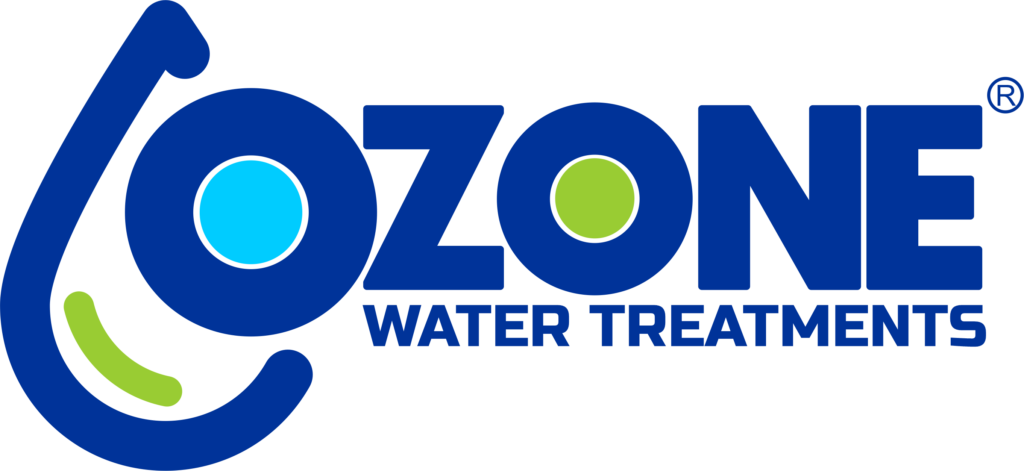Blog
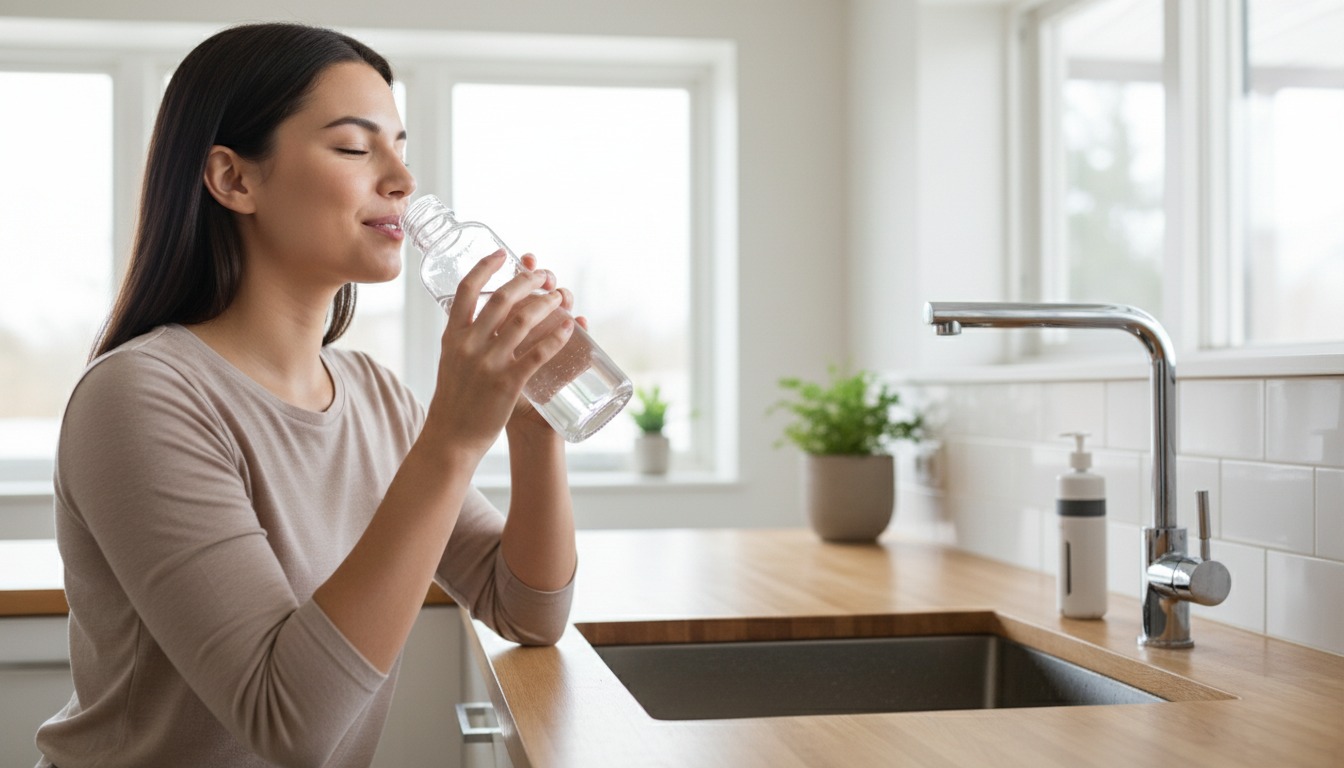
El Secreto Detrás del Agua Embotellada: ¿Pagas por Agua del Grifo?
¿Alguna vez te has preguntado de dónde viene exactamente el agua que compras en la botella de plástico de Coca-Cola o Pepsi? La respuesta podría sorprenderte. Resulta que las marcas de agua embotellada más vendidas en Estados Unidos, Dasani y Aquafina, no provienen de manantiales alpinos prístinos ni de acuíferos subterráneos remotos. Su fuente inicial es mucho más mundana: el sistema municipal de agua potable, es decir, el agua del grifo de la ciudad.
Tanto Coca-Cola (con Dasani) como PepsiCo (con Aquafina) han confirmado públicamente esta realidad.
La Fuente Urbana y el Proceso de Purificación
La revelación de que estas marcas usan agua pública ha generado debates a lo largo de los años. Sin embargo, las compañías se defienden argumentando que la clave no es el origen, sino el riguroso proceso de purificación al que someten esa agua. No se trata simplemente de llenar botellas con agua del grifo sin tratar.
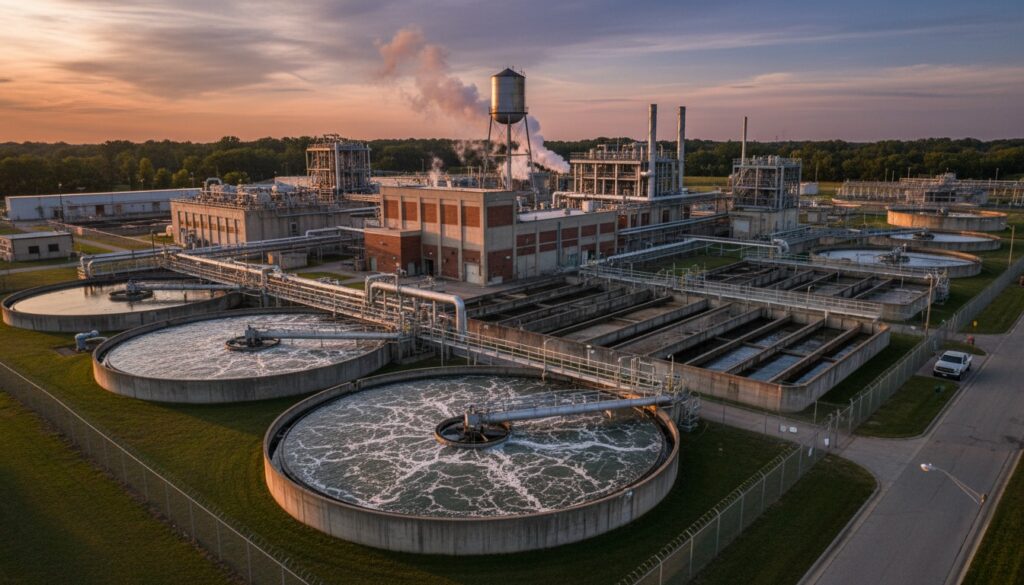
Aquafina (PepsiCo)
Aquafina utiliza un sistema intensivo de siete pasos llamado “HydRO-7”. Este proceso incluye:
Ósmosis Inversa: Un proceso clave que fuerza el paso del agua a través de membranas semipermeables para eliminar casi todos los sólidos disueltos, incluyendo sales, cloruros y otras impurezas.
Ozonización y Filtración Adicional: Pasos adicionales para garantizar la pureza microbiológica y la eliminación de sabores y olores.
El resultado es un agua de alta pureza, con un nivel promedio de Sólidos Disueltos Totales (TDS) de aproximadamente 4 partes por millón (ppm), lo que está muy por debajo del estándar de la FDA de 10 ppm para agua purificada.
Dasani (Coca-Cola)
Dasani sigue un camino similar, empleando múltiples barreras de tratamiento que incluyen:
Ósmosis Inversa y Nanofiltración: Para purificar el agua de origen municipal.
Remineralización: A diferencia de Aquafina, que busca la pureza extrema, Dasani añade una mezcla patentada de minerales (como sulfato de magnesio, cloruro de potasio y sal común) después de la purificación. El objetivo es lograr un sabor específico y consistente que la marca considera atractivo para el consumidor.
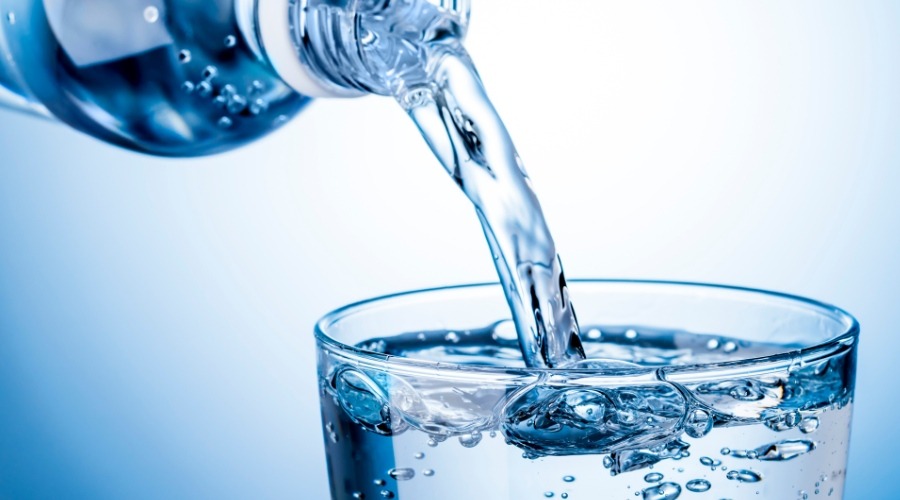
¿Marketing Inteligente o Engaño al Consumidor?
Ambas marcas están sujetas a la regulación de la Administración de Alimentos y Medicamentos de EE. UU. (FDA) y cumplen o superan todos los estándares de calidad para el agua embotellada.
A pesar de esto, las compañías han enfrentado críticas. En 2004, Dasani tuvo que retirar un lote de agua en el Reino Unido porque su proceso de purificación había creado subproductos químicos inaceptables, un incidente que atrajo mucha atención negativa hacia la fuente del agua.
El debate se centra en si es ético vender agua del grifo tratada a un precio significativamente mayor que el agua del grifo regular. Los defensores argumentan que los procesos de purificación y la conveniencia de la botella justifican el precio, mientras que los críticos lo ven como un ejemplo de marketing inteligente que explota la percepción de “pureza” y “origen natural” que los consumidores asocian con el agua embotellada.
La Conclusión
La próxima vez que tomes una botella de Dasani o Aquafina en Estados Unidos, sabrás que estás bebiendo agua que comenzó su viaje en una planta de tratamiento municipal cerca de ti. Ha sido limpiada, purificada y, en el caso de Dasani, sazonada con minerales para el sabor.
Fuente de Información:
Información Corporativa Pública: Ambas Coca-Cola y PepsiCo han declarado públicamente que utilizan fuentes de agua municipales.
Regulaciones de la FDA: La Administración de Alimentos y Medicamentos de EE. UU. regula la calidad y el etiquetado del agua embotellada.
Reportajes de Medios: Numerosos medios de noticias, incluyendo Reuters, Associated Press y publicaciones de consumo como Consumer Reports, han cubierto este tema a lo largo de los años, confirmando los orígenes y procesos de purificación de estas marcas.
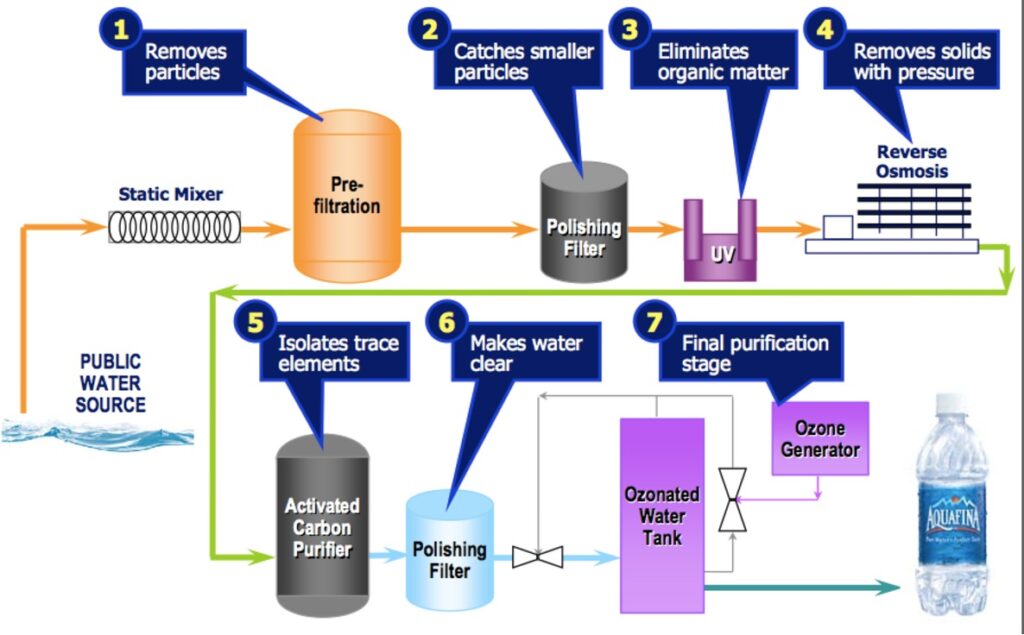
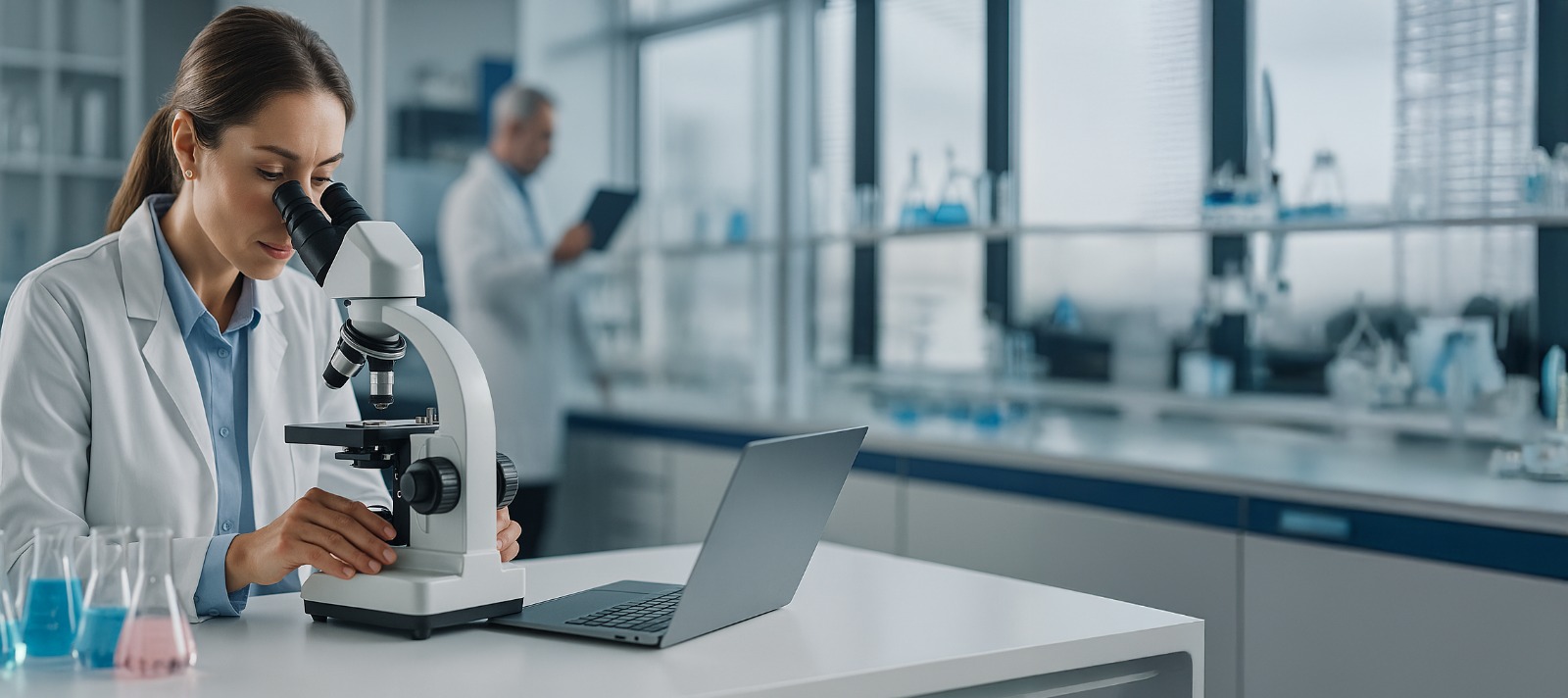
PFAS en el agua potable: qué encontró el nuevo estudio y qué puedes hacer en casa
Un equipo de la Keck School of Medicine (USC) analizó grandes bases de datos de EE. UU. y halló una asociación entre niveles de PFAS (los llamados “químicos eternos”) en el agua potable y una mayor incidencia de ciertos cánceres poco frecuentes. El incremento estimado varía entre +2 % y +33 %, según el tipo de cáncer y el compuesto medido. Con base en cifras recientes de la EPA, los autores calculan que la exposición a PFAS en el agua podría contribuir a ≈6,800 casos de cáncer al año en el país.
Importante: se trata de un estudio ecológico (a nivel poblacional). No demuestra causa-efecto; sí orienta futuras investigaciones y decisiones de salud pública.

¿Qué son las PFAS y por qué importan?
Las sustancias perfluoroalquiladas y polifluoroalquiladas (PFAS) se usan desde hace décadas en textiles, revestimientos antiadherentes, espumas contra incendios y algunos envases de alimentos. Son muy persistentes (se degradan lentamente) y pueden acumularse en el ambiente y en el organismo. Estimaciones recientes sugieren que alrededor del 45 % del agua de grifo en EE. UU. podría contener alguna PFAS detectable.
Cómo se hizo el estudio
Diseño: análisis ecológico (poblacional).
Período y fuentes:
Incidencia de cáncer 2016–2021 (registros nacionales).
Niveles de PFAS en agua potable 2013–2024 (programas federales de monitoreo).
Controles: edad, sexo, factores socioeconómicos, tabaquismo, obesidad, urbanización y otros contaminantes.
Financiación: Institutos Nacionales de Salud (NIH).

Principales hallazgos
Mayor incidencia (asociada) de varios cánceres digestivos, endocrinos, respiratorios y de boca/garganta en condados con agua que superó los niveles recomendados para ciertos PFAS.
El rango del incremento estimado va de +2 % a +33 %, con variaciones por tipo de PFAS.
Se observaron diferencias por sexo:
En hombres: mayor incidencia de leucemia y cánceres del sistema urinario, cerebro y tejidos blandos.
En mujeres: mayor incidencia de cáncer de tiroides, boca/garganta y tejidos blandos.
Proyección poblacional: ≈6,864 casos/año de cáncer atribuibles a PFAS en el agua, según supuestos del modelo y datos de la EPA.
De nuevo, hablamos de asociaciones a nivel de condado. Se requieren estudios individuales para confirmar mecanismos y causalidad.
¿Qué hará la autoridad regulatoria?
La EPA ya anunció límites para seis PFAS en agua potable. El cronograma federal prevé monitoreo generalizado y cumplimiento pleno hacia 2029. Algunos sistemas iniciarán acciones de control antes, según cada estado y municipio. Los autores del estudio apuntan que podrían requerirse límites más estrictos y vigilancia sobre otros PFAS menos estudiados.

¿Qué puede hacer una familia hoy?
Aunque la regulación avanza, hay medidas domésticas que ayudan a reducir la exposición:
Conocer tu fuente: ¿pozo privado o red municipal? Cada una presenta retos distintos.
Realizar un análisis profesional del agua: medir compuestos objetivo y parámetros de calidad (TDS, dureza, hierro, cloro/cloraminas, etc.).
Elegir tecnologías eficaces para PFAS:
Ósmosis inversa (RO) de alto desempeño en punto de uso (cocina) o como parte de un sistema multietapa.
Carbón activado de alta calidad y contact time adecuado, como etapa complementaria.
Mantenimiento al día (cambios de filtros y sanitización).
Buenas prácticas en el hogar: evitar hervir el agua como “solución” (no elimina PFAS) y, si usas agua embotellada, revisar el sello y el origen.
En Ozone Water Treatments diseñamos soluciones multietapa (sedimentos, carbón, RO, alcalinización) con instalación profesional y mantenimiento sencillo, adaptadas a pozo o municipal. Nuestro equipo evalúa tu caso y recomienda la configuración más conveniente para tu familia.
Preguntas frecuentes
¿Las PFAS “causan” cáncer?
El estudio reporta asociaciones a nivel poblacional, no causalidad. Aun así, por su persistencia y bioacumulación, las PFAS son motivo de atención en salud pública.
¿Hervir el agua ayuda?
No. Hervir no elimina PFAS. Se requieren barreras de tratamiento (p. ej., RO y/o carbón activado).
¿La ósmosis inversa quita todo?
La RO es una de las tecnologías más efectivas para reducir PFAS, sobre todo combinada con carbón activado. El desempeño final depende del diseño del sistema, el mantenimiento y la calidad de los componentes.
¿Debo esperar a 2029?
No es necesario. Puedes medir tu agua y reducir la exposición desde ahora con soluciones domésticas certificadas y un plan de mantenimiento claro.
Conclusión
El nuevo análisis de la USC refuerza una señal que no debemos ignorar: las PFAS están extendidas y podrían vincularse con mayor incidencia de algunos cánceres. Mientras avanza la regulación, las familias pueden actuar hoy con diagnóstico y tratamiento adecuados en casa.
Agenda un análisis profesional de tu agua y recibe una recomendación personalizada para tu hogar.
👉 Solicita tu prueba gratuita (cupos limitados por zona).
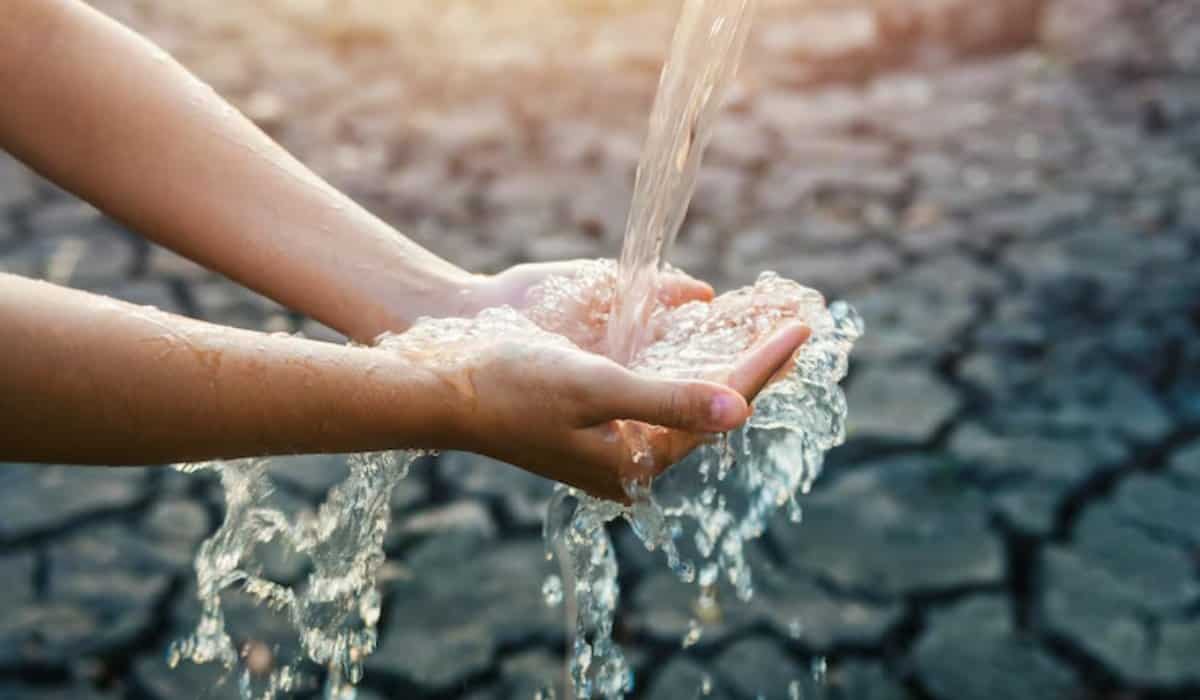
El Impacto del Cierre del Gobierno en los Servicios de Agua y Alcantarillado en EE. UU.
Por: Alex Cossin, Editor Asociado de WaterWorld Magazine
El cierre del gobierno en Estados Unidos no solo afecta las agencias federales y los empleados públicos, sino que también tiene consecuencias significativas en los servicios esenciales, como el agua potable y el tratamiento de aguas residuales. En este artículo, exploramos cómo un shutdown gubernamental interrumpe las operaciones de las agencias encargadas de la regulación ambiental, especialmente la EPA (Agencia de Protección Ambiental), y lo que esto significa para las comunidades y las empresas de servicios de agua.
¿Qué es un cierre del gobierno?
Un cierre del gobierno, o “government shutdown”, ocurre cuando el Congreso de EE. UU. no aprueba el presupuesto necesario para financiar las operaciones del gobierno federal. Cuando esto sucede, muchas agencias y programas federales dejan de funcionar hasta que se alcanza un acuerdo. Si bien algunos servicios de emergencia continúan, las actividades rutinarias, como la emisión de permisos y las inspecciones regulares, se suspenden.
Impacto en la EPA y la regulación del agua
Uno de los sectores más afectados por un cierre del gobierno es el de la EPA, la cual desempeña un papel crucial en la regulación del agua, incluyendo la supervisión de la calidad del agua potable, el tratamiento de aguas residuales y la emisión de permisos ambientales. Durante un cierre del gobierno:
Se suspenden muchas actividades de la EPA que no sean de emergencia. Esto incluye la emisión de nuevos permisos para proyectos de tratamiento de agua y la supervisión de la implementación de nuevas normativas de calidad del agua.
Los proyectos de agua y alcantarillado financiados por la EPA pueden retrasarse debido a la falta de recursos federales para aprobar permisos y ofrecer financiamiento adicional. Esto podría tener consecuencias negativas en las infraestructuras locales de agua y saneamiento.
Emergencias y respuesta rápida
A pesar de la paralización de muchas actividades rutinarias, las funciones de respuesta a emergencias continúan. Esto significa que si se produce una emergencia ambiental, como un derrame de agua o una contaminación grave, la EPA y otros servicios de emergencia tienen los recursos para actuar rápidamente y proteger la salud pública. Sin embargo, las actividades no urgentes, como las inspecciones programadas o la investigación de contaminantes, quedan suspendidas.
¿Cómo afecta esto a las comunidades?
El impacto del cierre del gobierno en los servicios de agua y alcantarillado varía según la región y la dependencia de las agencias federales para el financiamiento y las aprobaciones. Para muchas comunidades locales, los retrasos en los permisos o en el acceso a fondos federales pueden traducirse en proyectos de infraestructura retrasados, como la renovación de sistemas de tratamiento de aguas residuales o la construcción de nuevas instalaciones de filtración de agua.
Además, las pequeñas empresas y contratistas que dependen de los fondos de la EPA pueden enfrentar problemas de flujo de efectivo debido a la falta de pago por parte del gobierno. Esto puede causar demoras en los proyectos y aumentar los costos.
Conclusión
Aunque el cierre del gobierno afecta principalmente a las agencias federales y los procesos burocráticos, también tiene un impacto directo en la calidad del agua y la infraestructura sanitaria de muchas comunidades en EE. UU. La falta de una supervisión constante y de nuevos fondos puede retrasar proyectos cruciales para la mejora de los sistemas de agua y alcantarillado.
Es esencial que los líderes gubernamentales encuentren soluciones para minimizar estos impactos en los servicios públicos y garantizar que las comunidades tengan acceso a agua limpia y segura, incluso en tiempos de crisis política.
Fuente: Alex Cossin, Editor Asociado de WaterWorld Magazine.

El agua de tu grifo podría estar ligada a abortos espontáneos
Un reciente informe publicado en Estados Unidos ha encendido las alarmas sobre la calidad del agua potable y sus posibles efectos en la salud reproductiva.
De acuerdo con la investigación, se estima que entre 30 y 40 toneladas de residuos médicos, incluidos restos humanos, terminan cada año en los sistemas de agua. Esto estaría relacionado con los más de 700.000 abortos químicos anuales que se realizan en el país. Según los expertos que participaron en el estudio, muchos de los compuestos presentes en estas intervenciones médicas no son eliminados completamente en las plantas de tratamiento y pueden llegar a los hogares a través del grifo.
Un riesgo invisible
Los especialistas advierten que este tipo de contaminantes son persistentes en el ambiente y se acumulan con el tiempo. Aunque aún faltan estudios concluyentes, existe preocupación creciente sobre su relación con:
Abortos espontáneos y complicaciones en el embarazo.
Riesgos en el desarrollo fetal.
Alteraciones hormonales que afectan la fertilidad.
Impacto en órganos vitales como el hígado y el sistema inmunológico.
La investigación incluye entrevistas con expertos en tratamiento de agua, modelajes propios y referencias a estudios académicos, además de peticiones directas a la Agencia de Protección Ambiental (EPA) para ampliar la regulación y el monitoreo de estas sustancias.
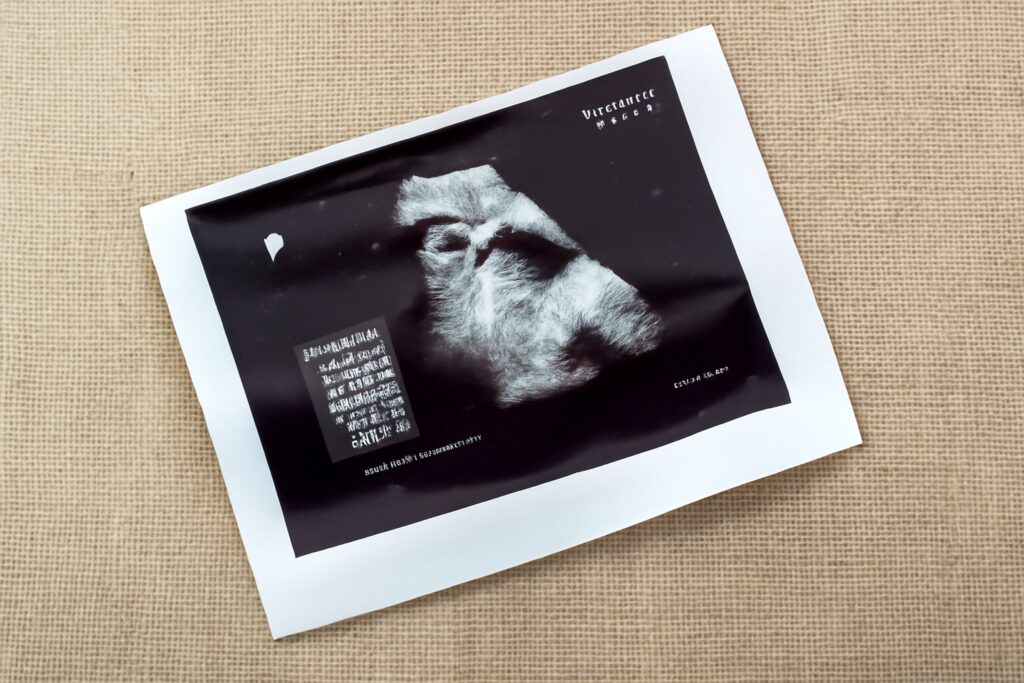
Un problema de salud pública
El agua forma parte de cada aspecto de nuestra vida: la bebemos, cocinamos con ella, la usamos para preparar alimentos infantiles y hasta para nuestra higiene diaria. Por eso, la presencia de contaminantes resistentes en el suministro no es un asunto menor, sino una cuestión de salud pública y bienestar familiar.
Los investigadores señalan que la prevención es clave: conocer los reportes de calidad del agua en cada ciudad, entender qué contaminantes están presentes y considerar soluciones de purificación en el hogar son pasos esenciales para reducir la exposición a riesgos invisibles.
Una conversación necesaria
Si bien el tema puede resultar incómodo, los hallazgos buscan abrir el debate y promover una discusión más amplia sobre lo que realmente contiene el agua que consumimos. La evidencia científica y los reportes ciudadanos coinciden en un punto: lo que no vemos también puede afectarnos profundamente.

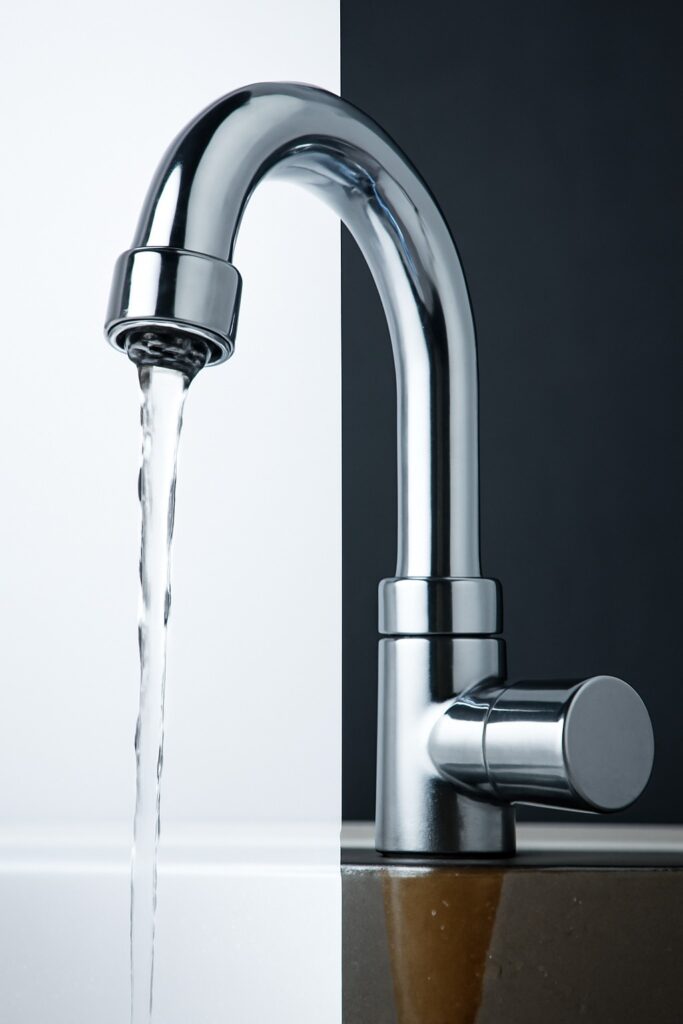
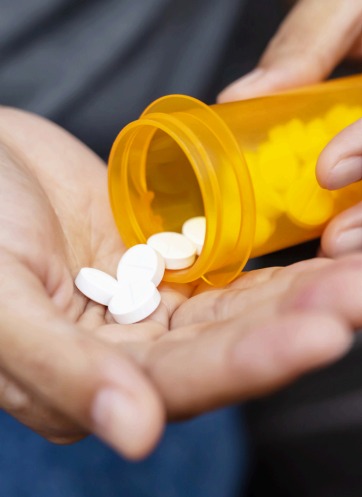
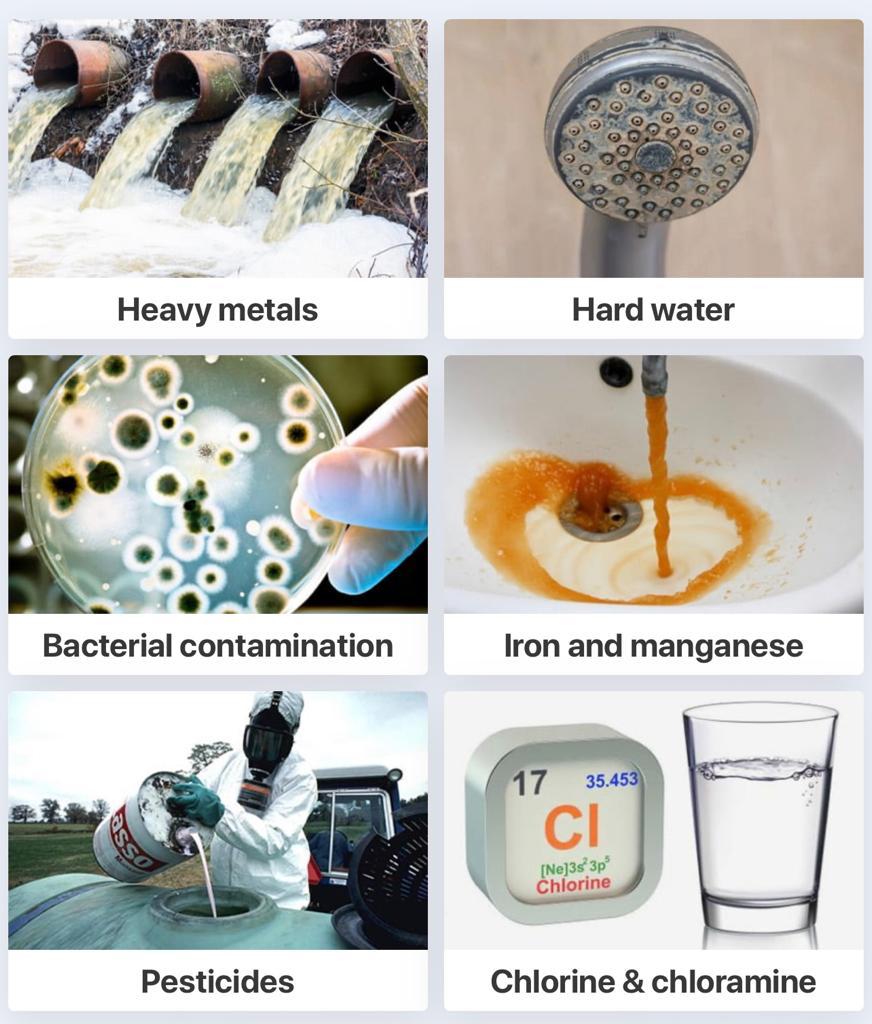
Crisis por PFAS en el agua potable de EE. UU
Más de 172 millones de personas están expuestas a los llamados “químicos eternos” (PFAS), compuestos sintéticos casi indestructibles usados en utensilios antiadherentes, empaques, textiles y espumas contra incendios.
🔎 Según la EPA y el EWG, hasta agosto 2025 se han detectado 3,309 sitios contaminados, con mayor concentración en la costa Este.
⚠️ Riesgos: cáncer, enfermedades de tiroides, daño hepático, problemas de fertilidad y efectos en el sistema inmune y el desarrollo infantil.
📊 La EPA fijó límites máximos muy bajos para algunos PFAS:
- PFOA / PFOS: 4 ppt
- PFHxS / PFNA: 10 ppt
🌍 Urge atención: superar estos niveles ya representa un peligro para la salud pública.
Fuente: (El Diario)
